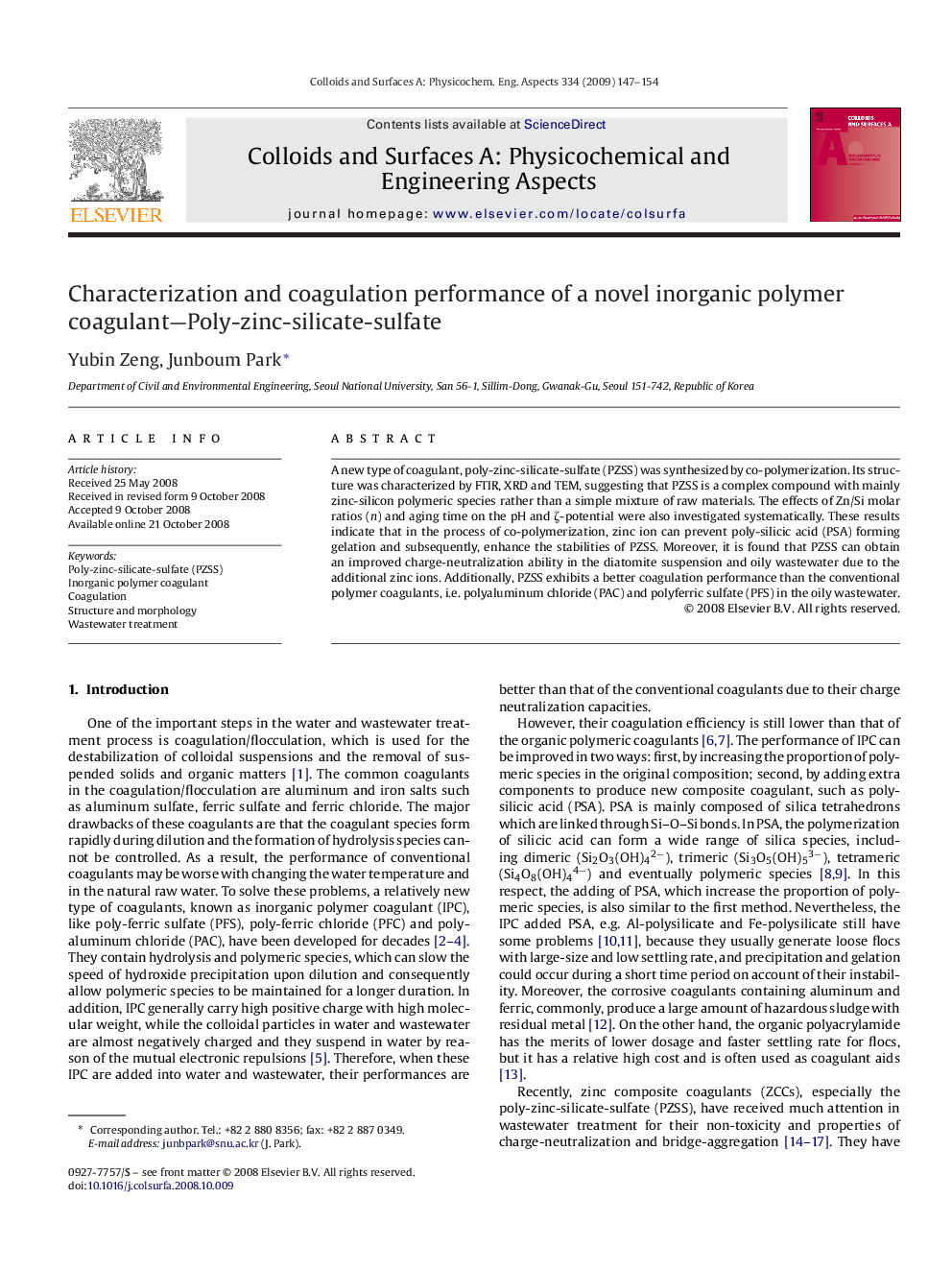| Article ID | Journal | Published Year | Pages | File Type |
|---|---|---|---|---|
| 596225 | Colloids and Surfaces A: Physicochemical and Engineering Aspects | 2009 | 8 Pages |
A new type of coagulant, poly-zinc-silicate-sulfate (PZSS) was synthesized by co-polymerization. Its structure was characterized by FTIR, XRD and TEM, suggesting that PZSS is a complex compound with mainly zinc-silicon polymeric species rather than a simple mixture of raw materials. The effects of Zn/Si molar ratios (n) and aging time on the pH and ζ-potential were also investigated systematically. These results indicate that in the process of co-polymerization, zinc ion can prevent poly-silicic acid (PSA) forming gelation and subsequently, enhance the stabilities of PZSS. Moreover, it is found that PZSS can obtain an improved charge-neutralization ability in the diatomite suspension and oily wastewater due to the additional zinc ions. Additionally, PZSS exhibits a better coagulation performance than the conventional polymer coagulants, i.e. polyaluminum chloride (PAC) and polyferric sulfate (PFS) in the oily wastewater.
